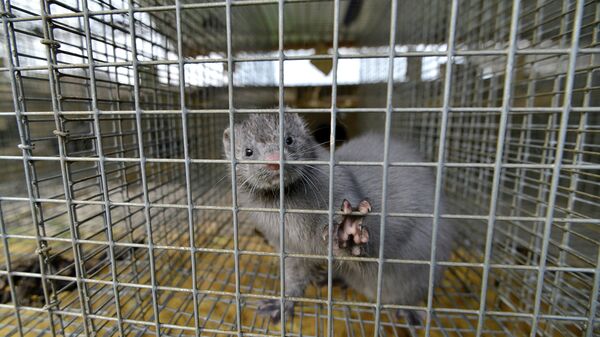Scientists are investigating whether coronavirus can be passed on from animals to humans, following various outbreaks on mink fur farms in Spain and the Netherlands.
Last month Spain ordered for nearly 100,000 minks to be culled on a farm and in the Netherlands over a million have been culled on several farms so far due to coronavirus outbreaks.
It is believed the virus first reached the farms through infected workers, who passed it onto the animals.
Scientists also believe that it is “plausible” that the minks then passed it back to the staff and are currently investigating the level of threat the animals pose.
The outbreak at the Spanish mink farm, in Puebla de Valverde, about 100 km from Valencia, was discovered after seven workers tested positive for Covid-19 at the end of May, according to Joaquin Olona, regional chief of agriculture and environment. It is believed that two other workers became infected even after operations were shut down.
Olona said that the decision to cull the mink was taken "to avoid the risk of human transmission,” but stressed that it was not clear if "transmission was possible from animals to humans and vice versa".
Over 92,000 of the animals were ordered to be killed on 13 July after 87 percent of the minks had tested positive for Covid 19. Since then no animals have been left on the property, which is the only mink farm in the Aragon region.
In the Netherlands Covid-19 outbreaks on mink farms started in April, and as of Thursday 27 farms have been infected so far.
Since April, professor Wim van der Poel, a veterinarian who studies viruses at Wageningen University and Research, determined that the virus strain in the animals was similar to the one circulating among humans.
“We assumed it was possible that it would be transmitted back to people again,” the virus expert said.
During the early stages of the outbreak it was believed that coronavirus was first passed from bats, or another animal, to humans, but this has not been confirmed.
The US Centres for Disease Control and Prevention says some coronaviruses that infect animals can be spread to humans and then spread between people, but it adds that this is rare.
The World Health Organisation (WHO) is aware of the outbreak on the mink farm, but believes that transmission from animals to humans was "very limited".
The WHO and the Paris-based World Organisation for Animal Health are currently researching the transmission of the virus between animals and humans and several other universities and research institutes are doing the same.


